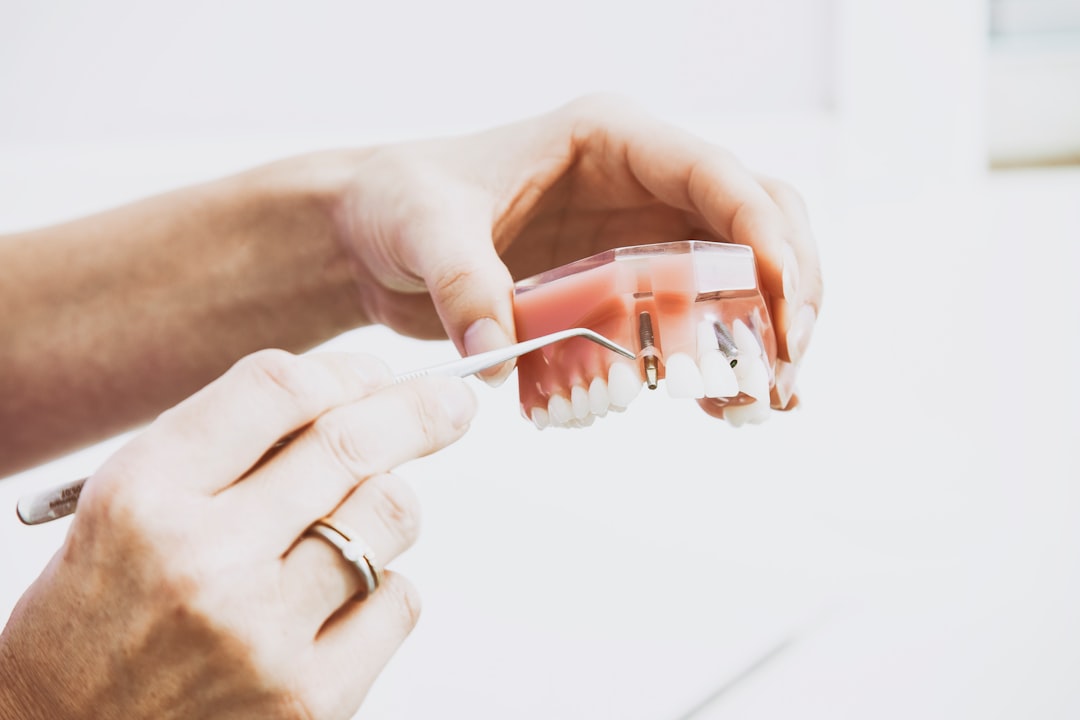Dentist Ngaio Niho
Dentists study and treat diseases, injuries and problems of the mouth, teeth, gums and jaw. They also educate patients on how to avoid oral health problems.
Dentists need to be registered with the Dental Council of New Zealand.
Dentists may do some or all of the following:
- examine patients' mouth, teeth, gums and jaw
- identify and treat diseased teeth and gums
- replace missing teeth with implants, bridges, or partial or full dentures
- improve the appearance of teeth with veneers, crowns, bleaching or braces
- advise patients on how to keep their teeth clean and prevent diseases
- refer patients to other dental specialists and health professionals
- dental research.
To specialise in an area of dentistry, such as orthodontics, you need to complete postgraduate study at the University of Otago. You also need to be registered as a dental specialist with the Dental Council of New Zealand.
- University of Otago website -postgraduate training as a dental specialist
- Dental Council of New Zealand website - registration as a dental specialist
Physical Requirements
Dentists need to have good eyesight (with or without corrective lenses) and good hand-eye co-ordination.
Useful Experience
Useful experience for dentists includes work with people, particularly in the health industry.
Personal Qualities
Dentists need to be:
- able to relate to a wide range of people
- accurate, with an eye for detail
- able to work well under pressure
- good at problem solving and decision making.
Skills
Dentists need to have knowledge of:
- how to assess and identify dental problems
- the structure and functions of the teeth, jaw and mouth
- the structure and functions of the body, and general injuries and diseases of the body, especially the head and neck
- injuries and diseases of the mouth
- dental and oral health care methods, materials and medicines
- hygiene and sterilisation procedures
- first aid.
Conditions
Dentists:
- usually work regular business hours, but may be required to do some evening and weekend work
- work in offices and surgeries in places such as private practices, hospitals and community health centres.
Subject Recommendations
A tertiary entrance qualification is required to enter further training. Useful subjects include maths, chemistry, physics, biology, health education and English.
Related Courses
Dentists can earn around $129K-$254K per year.
Pay for dentists varies depending where they work, their experience, location and size of their practice.
Dentists who work for Te Whatu Ora Health NZ (previous DHBs)
- Dental officers earn between $129,600 and $195,800 a year.
- Dental specialists or principal dental officers can earn between $170,000 and $251,000.
Dentists who work for the New Zealand Defence Force
- Dentists can earn from $196,000 to $254,000.
Dentists in private practice may earn more than this, but their income depends on the success of their business. They may be paid a salary or be on commission related to how many patients they treat.
Sources: careers.govt.nz research; New Zealand Defence Force website, accessed October 2023; and Association of Salaried Medical Specialists, 'New Zealand District Health Boards – Senior Medical and Dental Officers Collective Agreement, 1 April 2022 - 31 March 2023'.
Dentists may progress to set up their own practice.
Dentists may specialise in an area of dentistry such as:
- Oral and Maxillofacial Surgeon
- Oral and maxillofacial surgeons diagnose diseases, injuries, and defects of the jaw and surrounding structures. They also perform surgery to correct these diseases, injuries or defects.
- Oral Medicine Specialist
- Oral medicine specialists diagnose and manage the oral health care of patients with medically related disorders of the teeth and jaw.
- Orthodontist
- Orthodontists diagnose and correct bad bite, crooked teeth and poor jaw growth in children and young people. This often involves fitting braces and can involve correcting facial abnormalities such as a cleft palate.
- Paediatric Dentist
- Paediatric dentists provide oral health care to children from birth through to adolescence. Their work involves the management of dental problems related to behavioural, physical or developmental disabilities.
- Periodontist
- Periodontists treat diseases of the gum to prevent tooth loss.
Years Of Training
5 years of training required.To become a dentist you need to:
- complete the Health Sciences First Year programme at Otago University
- complete a four-year Bachelor of Dental Surgery degree at Otago University.
The University of Otago is the only university in New Zealand that offers a Bachelor of Dental Surgery.
- University of Otago website - Health Sciences First Year Programme
- University of Otago website - Bachelor of Dental Surgery
The Vulnerable Children Act 2014 means that if you have certain serious convictions, you can’t be employed in a role where you are responsible for, or work alone with, children.

 Marlborough Boys’ College
Marlborough Boys’ College